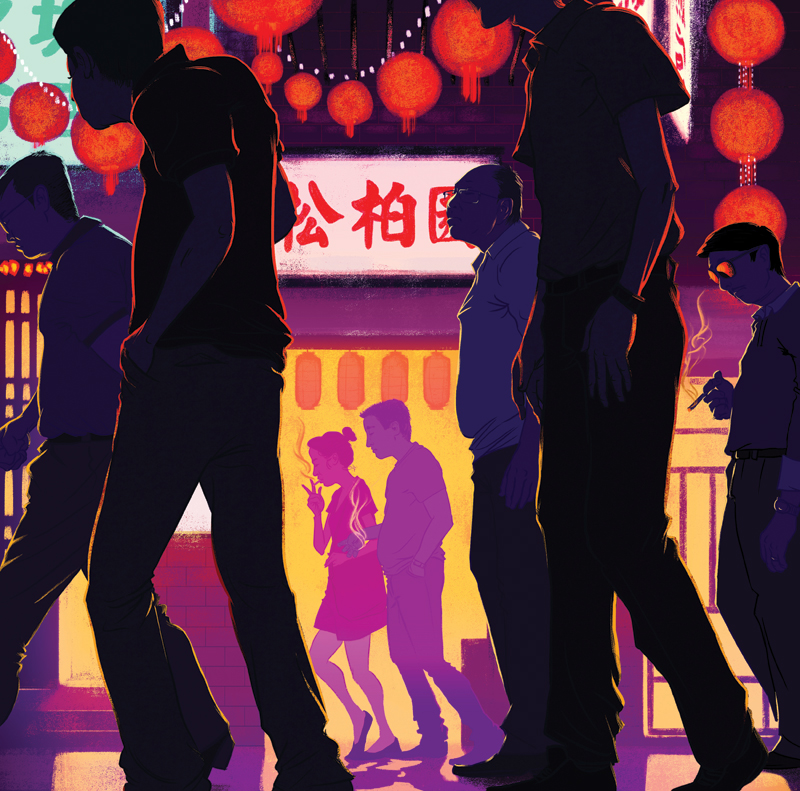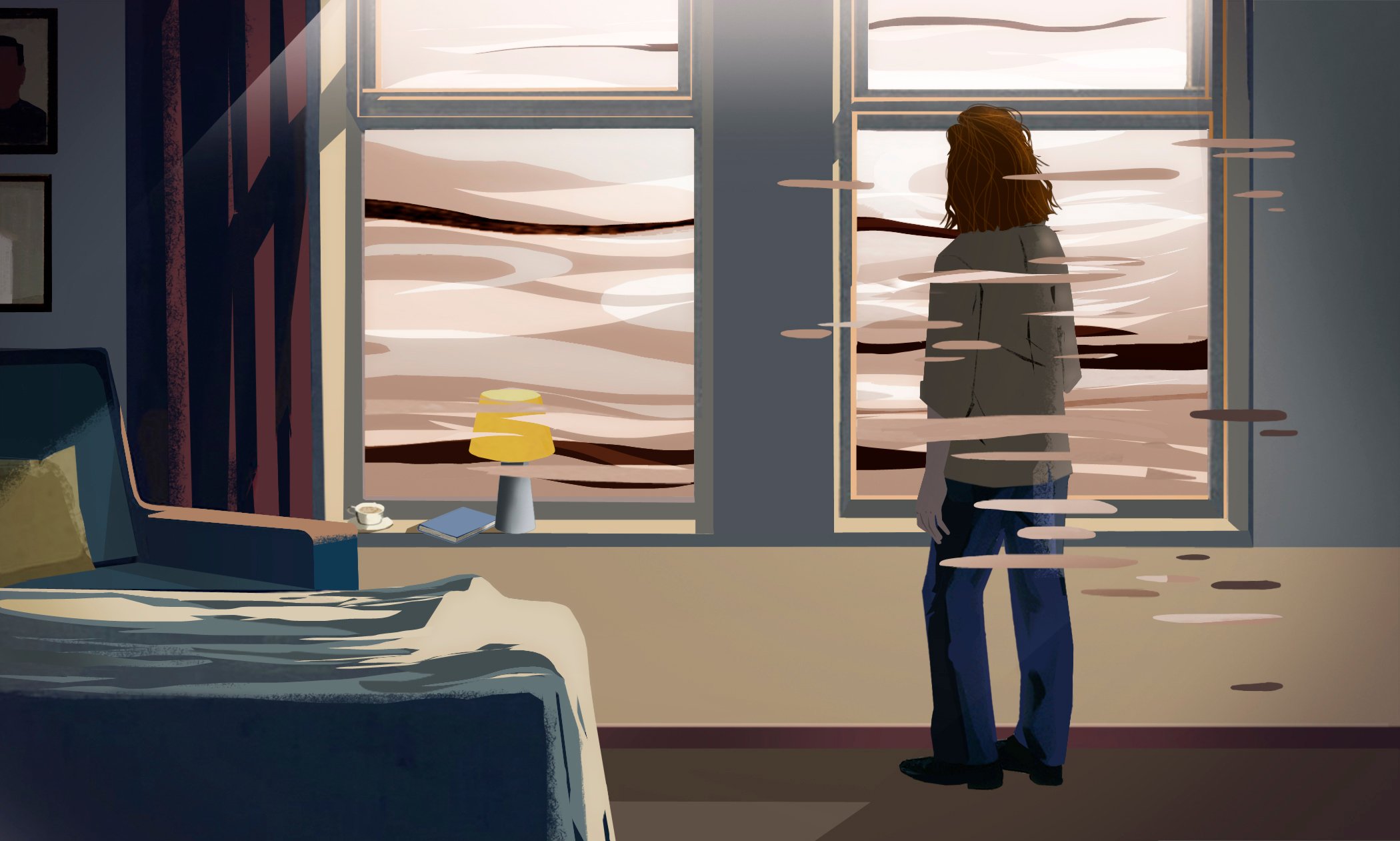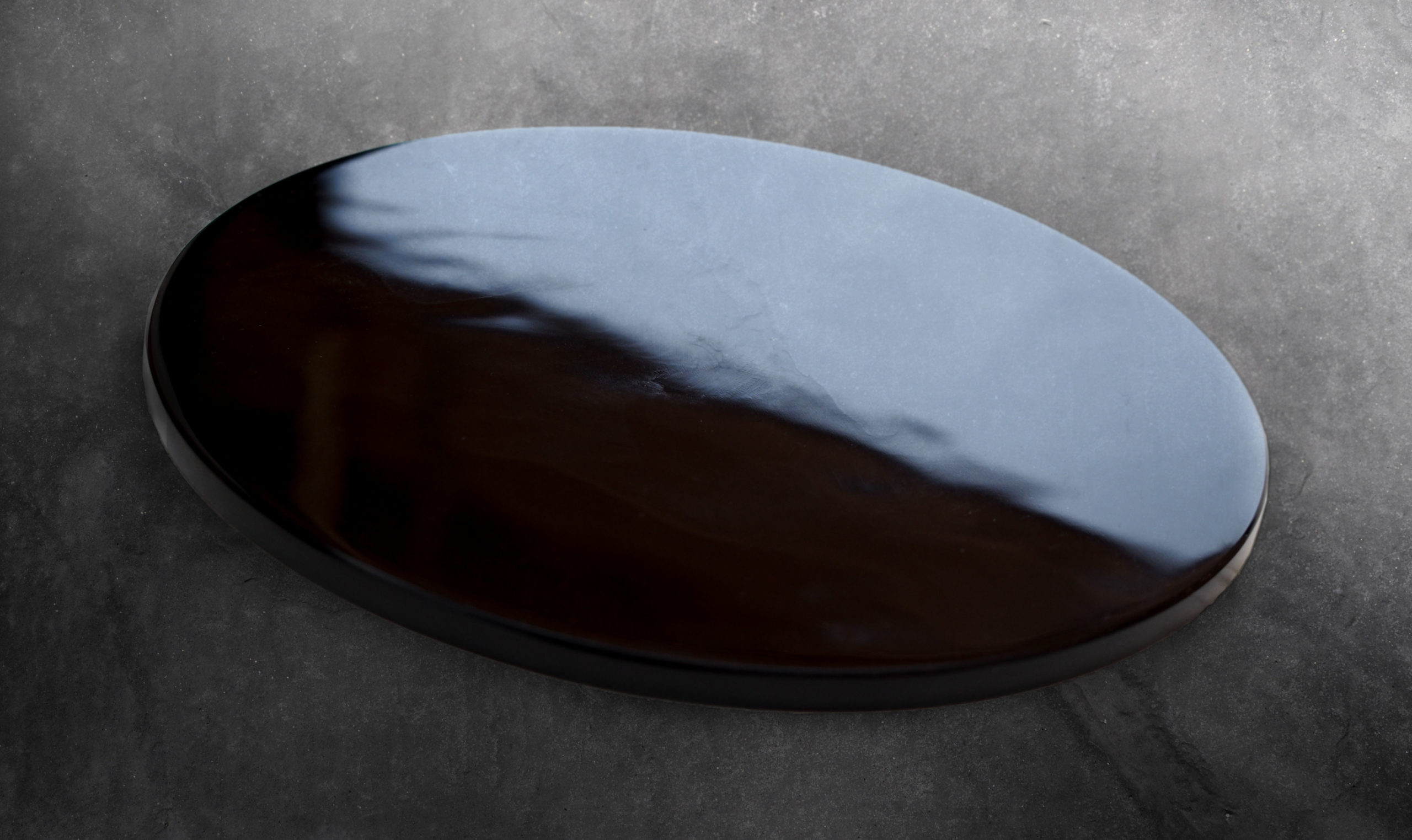
Short Story Contest Winner: “Fuzhou Nighttime Feeling”
A version of this story ran in the October 2014 issue.
Elizabeth McCracken knows short stories. Her second collection of short fiction, Thunderstruck, was released to much acclaim in April. She holds the James A. Michener Chair in Fiction at UT-Austin, overseeing a master’s-level program that revolves around the short story form. So when she agreed to serve as guest judge in this year’s Texas Observer Short Story Contest, we couldn’t help but ask: What does Elizabeth McCracken look for in a short story?
She cited British novelist William Boyd, who once wrote, “The great modern stories possess a quality of mystery and beguiling resonance about them—a complexity of afterthought—that cannot be pinned down or analyzed.”
“When I finish a short story,” McCracken said, “I want to feel as though my brain has been struck like a gong.”
Appropriate, then, that the story McCracken chose as winner is set in China, birthplace of the gong. For the first time in this contest’s four-year history, the winning piece is set outside of Texas.
Today we present the winner of the 2014 Texas Observer Short Story Contest: “Fuzhou Nighttime Feeling,” by Ling Ma.
And if you’re in the mood for more short stories, make sure you read all four of our finalists:
“Possibilities,” by Yliana Gonzalez
“Tongues,” by Jill Birdsall
“Strange Leaves,” by Christopher Carmona
“Behind and Past and Front and Ahead,” by Elizabeth Jackson
Fuzhou Nighttime Feeling
by Ling Ma
The first uncle I used to know better than all the others, though we’re not related by blood, and I haven’t seen him in more than a decade. He lives in Fuzhou, a southern coastal city of Fujian province, aka the ghetto of China, aka the Jersey of Asia, where I used to live and almost never visit. He has a slender frame and raffish profile; his upper lip sprouts a rat-like movie-villain mustache. That’s the way I remember him, when I was a kid and he let me stay in the wedding suite with him and my aunt, his face lit by the glare of the TV screen.
Fuzhou is so hot and sensuous all year-round, the kind of place, my grandma says, that breeds indolence. Things rot more quickly, everything melts, the local cuisine, rooted in sea and land meats, makes no comestible sense. Crime proliferates, mostly petty thievery; when there is violence, however, it is of the most astonishing, unimaginable kind. The streets are cleared for weeks, and the hose they use for cleaning is anvil-heavy. It’s the kind of climate, my grandma says, in which it’s difficult to maintain your character. Not only during the day, but at night too. So you see, she concludes, fanning herself with a dried palm leaf, this oppression is truly inescapable. If anyone has to leave, better that it’s you.
A long time passes before I come back, and when I do return, it’s to lacquered, air-conditioned rooms of relatives uncrinkling wrappers off of hard candy, shelling peanuts and gossiping. Days and days of rooms of relatives.
During the first uncle’s bouts of depression, he stops eating, stops speaking, and spends his days online. When he does go out, late at night creeping past wife and daughter asleep in other rooms, it’s to frequent karaoke bars solo and sing Taiwanese pop songs whose lyrics, everyone is surprised to learn, he knows word-for-word by heart: I am a nightingale that croons for a love that doesn’t exist. / Into the mountains and valley swells my love flees. / Against the northern winds I chase, not far behind. / How ardent my love, how worthless my lover. / Fuck my bitchy bitch bitch.
Every weekday, when his wife and daughter are out, my grandma walks to his house and cooks him lunch. When she peeks into the bedroom, he is in his usual stance: his back to the door, kneeling in front of the nightstand, clutching the beige phone receiver in one hand as he speaks to someone he declines, has declined over and over again, to identify, this person for whom his voice unfurls slow drowsy murmurings, like a comb through wet hair.
I live here, in beautiful, sunny, tropical Fuzhou, Fujian, fenced in by towering mountains and bounded by a boundless sea by which everyone leaves, where the palm trees sway and the nights run so late.
Only in the evenings does the second uncle force himself to sit upright, at the dining table, when his wife and daughter come home from their jobs at the bank. The women cook a simple dinner, which they lay out in front of him: cockleshell soup, sautéed bok choy, dumplings slathered in Chinese ketchup. The conversation is light, jovial, laughter ringing out in swells. After dinner, there is more tea. For a time, it seems like the second uncle may stay upright for the rest of the night. Maybe he’ll join his family in playing mah-jongg with the next-door neighbors, whose arrival is marked by the proffering of snacks: pistachios, sliced oranges, dried squid, sweet rice candies. The TV is switched on, blaring music videos and commercials. The room fills with chatter and jokes, cigarette smoke. A window in the corner is opened.
Quietly, so as not to be caught in the position of crawling, he lowers himself again to the floor.
My grandma maintains that of all her daughters, only my mother married wisely. Of the first and second uncles, she once said, One is weak in the mind, the other is weak in the body. She turned to me meaningfully: But not your father.
The third uncle is the only uncle I’m related to by blood. He is my father’s brother. Like all of my uncles, he lives in Fuzhou, working as a driver for local government officials. In the cement courtyard of his apartment complex sits a black Lexus with tinted windows that he washes and shines daily, in the mornings before work. The Lexus is to Chinese communism what the Lincoln Town Car is to American democracy, he says. Both look nice, but not too nice.
He wears aviator glasses, a polo shirt and chinos, and misleadingly he affects a stoic expression. When I see him for the first time in 15 years at a train station, he sizes me up and down. The trains get slower every year, he says.
The third uncle doesn’t resemble my father in stature or personality. My father is thin and lanky, whereas the third uncle is muscular and heavy. My father is reserved and contemplative, whereas the third uncle is brash and emotional, prone to jagged, drunken bouts, punching through tables, chairs, mirrors, the plastic chandelier that swings above our heads, throwing shadows everywhere. He lunges at my father, yelling so fast and crazy that all his grievances blend together, rendered indecipherable. Everyone rushes to hold him back, their cries drowning out his yells, his own son trying to pry the tiny blade, a paring knife, out of his hands. He’s angry, it’s so clear that he’s angry, and if it’s not about one thing, then it’s about everything. The words come so fast, so accusingly, in a scrambled Fujianese that only the smallest, most childlike part of myself understands: You can’t just come back. You can’t just come back. You can’t just come back.
He says, You’ve been gone for so many years, and now we’re supposed to invite you to our homes? More than a decade, the capitalist comes back and he’s welcomed like some prodigal son?
My father stands there, as close as he can, daring his brother to come closer, his hands balling into fists at his sides. The low, mechanical hum of the ceiling fan descends over the room.
Think of all your similarities! my grandma interjects. You’re brothers—think of everything you share!
Despite their physical differences, there is one feature my father and his brother do share. It’s the face, a face so eerily similar they could’ve been identical twins. They have the same furrowed brow, the same dimples below the mouth, and the same deep, sunken eyes. Beneath the now-stilled chandelier, as my uncle finally sits down and breaks into heavy, chafing sobs, I think, So that’s what my father looks like when he cries.
There is a fourth uncle, but I hesitate to include him because I don’t know much about him. The man has barely said a word to me all my life. Not that I’ve said anything to him, either. He is balding, with bulbous features and a paunch. He owns a gourmet olive oil store that doubles as a bootleg shop; in the back room he sells American movies and porn.
The important thing about the fourth uncle is his son Bing Bing, who’s my favorite cousin, the only cousin I get along with, though it’s generally agreed that he’s the failure of the younger generation. No one faults him for it, though. Only my grandma says what everyone else avoids saying: That Bing Bing is the most intelligent and most sensitive of any of us, but that the fourth uncle and the entire family has breathed down his neck his entire life, casting doubts on every decision, disparaging every move, and now what the family has on its hands is a stunted, unmarried, 35-year-old man.
A failed doctor, a failed lawyer, a failed entrepreneur, my cousin has a plain face that is neither handsome nor ugly. It’s innocuous, forgettable. At times, when neither of his parents is looking, a mischievous grin steals over his face, mouse-like, as if he lives with an almost unbearably pleasurable secret, unknowable to anyone.
Fuzhou is so hot and sensuous all year-round, the kind of place, my grandma says, that breeds indolence.
We walk the streets of Fuzhou at night, in the one summer when I come back. Streetlights send our elongated shadows tumbling ahead of us, across the neon-tinged storefronts and buzzing lamps. Everyone comes out, the old men in wife-beaters and plastic sandals, the teenagers in fake American Eagle. Senior citizen ladies roll out before bedtime in pajama pants printed with SpongeBob or fake Chanel logos. There’s a Mickey D’s and a KFC, street dumpling stands, bootleg shops, karaoke bars. Everything’s open late, midnight or even later. There are places to get a full-body massage, an eight-ball, a happy ending. If you stay on these streets long enough, it’s possible you could get everything you want. Because I misremember everything, because I watch a lot of China travel shows when I am alone at night in Chicago, because TV mixes with my dreams mixes with my memories, we walk along the concourse that runs alongside the river even though there is no river, we turn down boulevards punctuated by palm-tree clusters even though those belong in Singapore, we smoke cigarettes openly even though it’s unseemly for women, especially in my family, to smoke in public. But the feeling, the feeling of being in Fuzhou at night, remains the same.
When I was a kid, I named this feeling Fuzhou Nighttime Feeling. It is not a cohesive thing, this feeling, it reaches out and bludgeons everything. It is excitement tinged by despair. It is despair heightened by glee. It is partly sexual in nature, though it precedes sexual knowledge. If Fuzhou Nighttime Feeling were a sound, it would be early/mid-’90s R&B. If it were a flavor, it would be the iced Pepsi we drink as we turn down tiny alleyways where little kids defecate wildly. It is the feeling of drowning in a big hot open gutter, of crawling inside an undressed, unstaunched wound that has never been cauterized.
Bing Bing, his face half-submerged in shadow, tells me, One day you’ll write about this.
Yeah and I’ll call it Ethnic Story, I say, and in my mind I start writing. It will begin like this:
The first uncle says, When are you getting married?
The second uncle says, What are you looking for in a man?
The third uncle says, Work on your figure. He hesitates. Especially the chin and calves.
The fourth uncle doesn’t say anything; he just thinks it.
In this story, called Ethnic Story, I return from the U.S., from Chicago and New York and the Bay. I do whatever my uncles say. I relearn Mandarin. I relearn Fujianese. I get married to another Fujianese. I live here, in beautiful, sunny, tropical Fuzhou, Fujian, fenced in by towering mountains and bounded by a boundless sea by which everyone leaves, where the palm trees sway and the nights run so late. I am so happy.
***
2014 Short Story Contest honorable mentions:
Tom Andes, New Orleans LA, “Mariachi”
Yvette Benavides, San Antonio TX, “Like Comment Share”
Caroline Bodian, New York NY, “A Lesson”
Martin Boozer, Austin TX, “One Man, One Vote”
Julia Carey, New Orleans LA, “Water Runs”
Michael L. Cohen, Tempe AZ, “Triceratops”
Emily Collins, San Marcos TX, “Among the Ghosts of Arrowheads”
Tom Dodge, Midlothian TX, “Eponymity”
William Dreiling, Caelum AZ, “Real Estate”
C. Austin English, Keller TX “Argosy”
C. Austin English, Keller TX, “The First Foe is Fear”
Janelle M. Evans, Las Vegas NV, “Delusio”
Lauren Elyse Garcia, San Antonio TX, “I Went Back Home & All I Got Was This Lousy Short Story”
Raul Garza, Austin TX, “LeBaron”
Samuel Hudson II, Fort Worth TX, “Doctor Tedley’s Dance Party”
Laura Lark, Houston TX, “The Vampire of Huntsville”
Greg Lipscomb, Austin TX, “Billy at the Brink”
Ben Lobpries, Chicago IL, “Children of Jericho”
Victor McConnell, Austin TX, “The Letter”
David Meischen, Austin TX, “The Road Home”
Jared Meisinger, Ames IA, “Gruene”
Bryce Milligan, San Antonio TX, “Eos and the Train Horns”
Molly Pascal, Pittsburgh PA, “Good Oak”
Saskia H. Pellnat. Hammond LA, “Niqabi”
Meghan Williams, Austin TX, “Money Shot”


